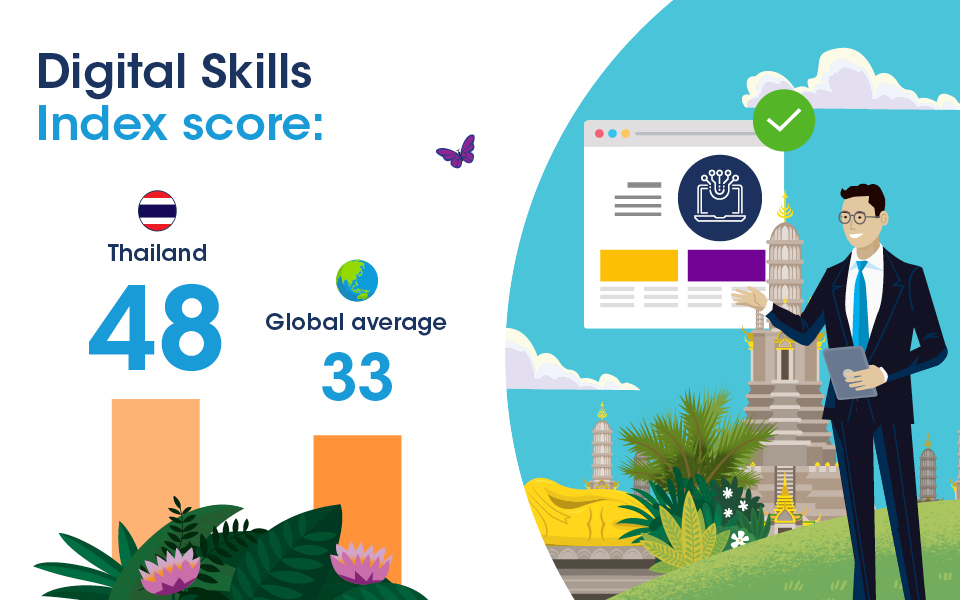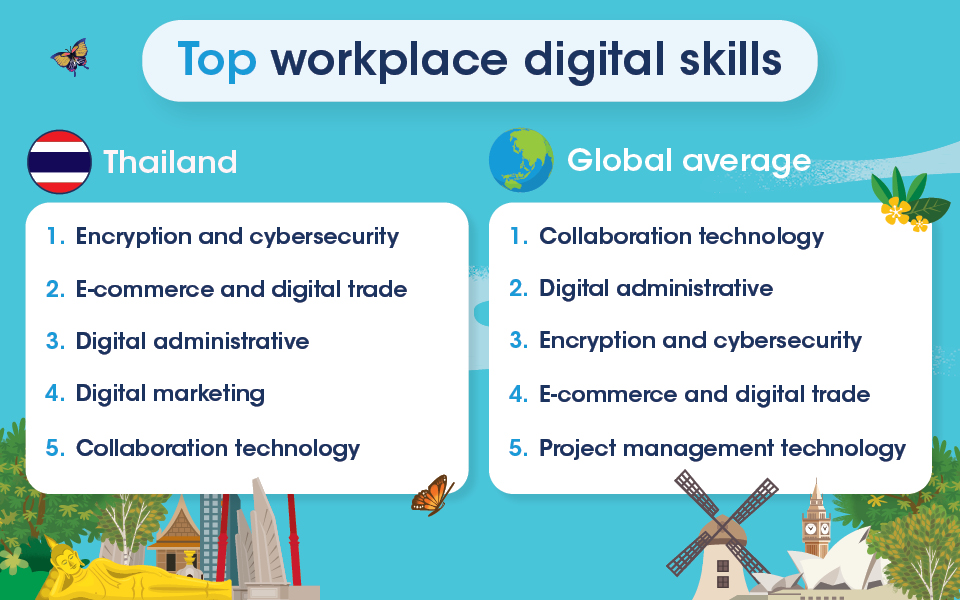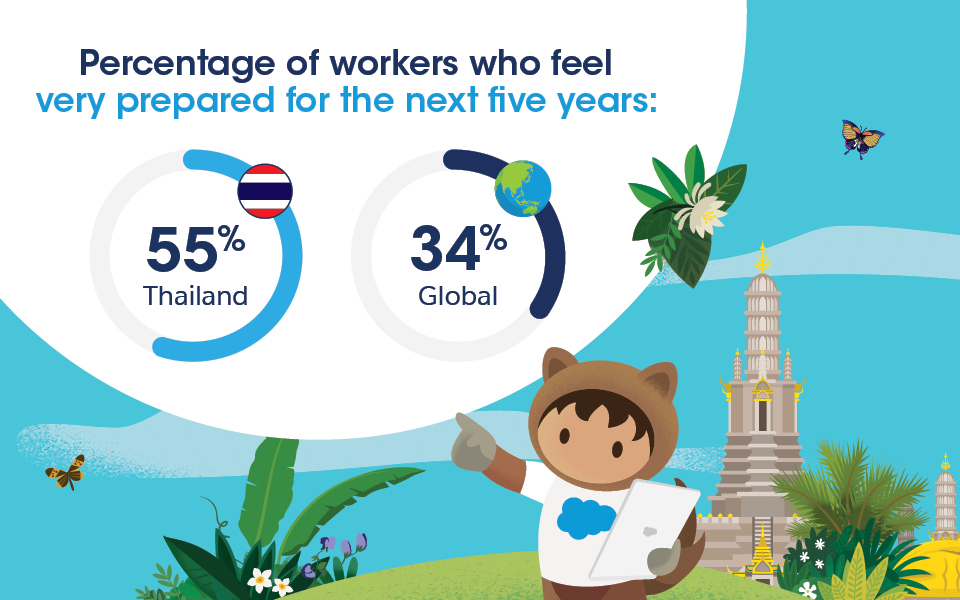Get your FREE 30-day trial.
Start by selecting a product:
When Salesforce published its new Digital Skills Index in January, it rang some alarm bells. We found that nearly three-quarters of respondents around the world didn’t feel equipped to learn the digital skills needed by businesses right now. Even more don’t feel equipped for future growth.
Digital skills are vital for the future of business, and it’s important that the workforce feel like they can embrace that new world. The good news for Thailand is that compared to the global average, the Thai workforce feels more ready than other regions to take on the challenge of a digital-first workplace.
In our research, we express this feeling of readiness as a Digital Skills Index score. This number reveals how ready the population feels about digital skills. Our research concluded that the average score for the global workforce was 33. Thailand’s score is markedly higher than this, at 48. Of the 19 countries surveyed, only Brazil and India scored higher. This shows that, although many feel there is still some way to go, some Thai workers feel confident in their ability to meet the needs of digital-first work in the future.

Digital skills can be as varied as basic online searching and emailing to specialist programming and development. We use digital skills in our everyday lives, as well as at work. As time goes on, communication, collaboration, problem solving, and even simple things like shopping will require these skills.
Everyday digital skills can include:
There are more advanced skills needed for the world of work. These can include:
Countries where the workforce doesn’t keep up with these trends could miss out. Research suggests that a widening skills gap could contribute to a collective loss of trillions of dollars in GDP.
In our survey, Thai workers expressed confidence in a range of skills that will be important for the future. Encryption and cyber security came out on top, with 28% of respondents saying that they had advanced skills in this area. This is in contrast with the global average, where only 14% claim an advanced knowledge of the subject.
Second on the list of top skills in Thailand is e-commerce and digital trade. We have already seen that over the last couple of years, more and more customers are starting to shop online. Again, Thai workers expressed a greater confidence in their skills than the global average.

Not only are workers in Thailand confident in their current skills, they are also preparing for a digital future. Fifty-eight percent of respondents said that they are ‘very prepared’ with the workplace skills that they’ll need over the next 5 years, with 43% saying that they will be ‘very actively’ learning digital skills over the same period.

Thai workers shouldn’t stop here. There is still much to be done — skills to improve, and trends to watch out for. Even for the most optimistic countries, there is still a gap between the skills that the workforce has right now, and the skills that businesses need for success.
Only 6% of the Thai workers surveyed said that they didn’t have any plans to add new skills. That means 94% said that they are learning new skills, either to help them in their current role, or even to change career. This suggests a workforce that is excited about working in new ways, and accessing employment opportunities around the globe.
However, everyday skills such as social media and web navigation don’t necessarily translate to the core workplace digital skills needed by businesses to drive recovery, resilience, and growth. Nearly 60% of Gen Z respondents said they have advanced social media skills, but less than a quarter believe they have the advanced digital marketing skills needed by businesses now.
There are generational differences too. For baby boomers and Gen X, the lowest levels of confidence are in digital marketing and sustainability technologies. Younger generations — millennials and Gen Zers — are less confident with product management technology and data visualisation.
Around the world, workers are less familiar with sustainability technology and artificial intelligence. These are areas of opportunity for those looking for a subject to specialise in. Whatever you choose to focus on, now is the time to start building up your digital skills.